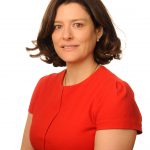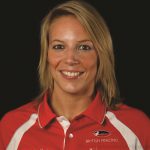On the 21st of June, we held our inclusion conference Ordinary People, Extraordinary Contributions!
 We invited delegates representing a myriad of industries (including law, banking, insurance, the armed forces, consulting, engineering, and tech) to explore how, as individual contributors, they can bring their whole selves to work.
We invited delegates representing a myriad of industries (including law, banking, insurance, the armed forces, consulting, engineering, and tech) to explore how, as individual contributors, they can bring their whole selves to work.
We also explored how organisations can tap into these hidden resources and how team leaders can leverage the complete individual.
We heard from companies that have introduced platforms that encourage individuals to bring their whole self to work, including Google, Accenture, RICS, Pi Consulting, Mercer, National Grid and many more.
We encouraged delegates to find their own hidden talent and think of ways they can bring it out in themselves and others. We challenged them to think of new ways in which they can stretch their team members and colleagues to give more of themselves,and we urged them to leverage their own diversity and that of their colleagues at work.
Why is this important?
If we don’t feel that we can bring our whole selves to work, or worse, if we feel that there is an expectation of conformity and covering, a number of things happen:
- Individuals don’t see themselves as leadership potential and therefore forego opportunities for advancement
- Not being yourself is unsustainable in the long term, leading to high attrition rates
- The millennial population has an expectation of being valued for who they are and place a high value on being authentic, so a culture that doesn’t respect that runs the risk of not being able to attract or retain talent
- Above all for business, an inclusive culture allows diversity to flourish. Given that diversity is a key driver for creativity and innovation – the hallmarks of any successful business these days, without inclusion, an organisation cannot harness the diversity of its people.
How do you cultivate diversity?
- By allowing every person to bring his or her whole self to work;
- by allowing each person to capitalise on his or her individual experience;
- by allowing a bit of friction and difference of opinion in your teams.
What did we learn at the conference?
Our keyn ote speaker, Miriam Gonzaléz Durantéz talked of the importance of respecting one another, both at work and at home. Respect evidences itself not just by being polite and kind but by allowing the other person the same liberties and entitlements as one allows himself or himself.
ote speaker, Miriam Gonzaléz Durantéz talked of the importance of respecting one another, both at work and at home. Respect evidences itself not just by being polite and kind but by allowing the other person the same liberties and entitlements as one allows himself or himself.
Addressing gender equality in particular, Miriam suggested that we need more men to recognise and acknowledge that women being equal doesn’t make men weak.
 We then heard from a panel of speakers, including Claire Bennett, a former professional fencing athlete, about integrating skills they developed in personal passions into their daily work routines. Claire, who now helps former professional athletes to transition into other professions, frequently falls back on the skills she developed as an elite athlete. Skills like resilience, motivation, endurance, commitment, drive and initiative are the foundation of every elite athlete which will serve any of us working for a successful business.
We then heard from a panel of speakers, including Claire Bennett, a former professional fencing athlete, about integrating skills they developed in personal passions into their daily work routines. Claire, who now helps former professional athletes to transition into other professions, frequently falls back on the skills she developed as an elite athlete. Skills like resilience, motivation, endurance, commitment, drive and initiative are the foundation of every elite athlete which will serve any of us working for a successful business.
 Chuck Stephens of Google shared with us ways in which he inspires employees to bring their whole selves to work. Having observed that certain unwanted consequences disappear once they have been openly highlighted, Chuck and the company emphasise these ramifications, allowing employees to self-manage their own behaviours.
Chuck Stephens of Google shared with us ways in which he inspires employees to bring their whole selves to work. Having observed that certain unwanted consequences disappear once they have been openly highlighted, Chuck and the company emphasise these ramifications, allowing employees to self-manage their own behaviours.

Mark Walley. RICS. London. United Kingdom.
Finally, we heard from a panel of representatives from organisations like National Grid, Mercer and the RICS about programmes they have introduced that strive to tap into the full talents and preferences of their workforce. This includes understanding the strengths of each person on the team and supporting them in leveraging those strengths.
The panel also talked about fostering a culture that invites employees to bring their whole selves to work allowing team leaders to gather insight into the diverse pool of experience within teams. One way an organisation can do this is the RICS’ Dare to Share and Dare to Ask platform which encourages employees to share their diverse experiences and backgrounds, as well as feel free to ask simple questions about people’s backgrounds and traditions.
Delegates connected face to face and on-line via our interactive event app, and responded to our LIVE polls
So what now?
We asked delegates to think about what they will be doing differently as a result of the conference. Here are some of their answers:
- 18% I will bring more of myself to work
- 46% I will be a role model to others, encouraging them to bring their whole self to work
- 24% I will be a more inclusive leader by listening and valuing the whole person
- 55% I will embark on my personal adventure/journey
- 24% I will find out how I/others in my team can contribute beyond the job description
Transforming culture
Changing a prevalent culture isn’t easy. It is, in fact, very difficult. But if we learned one thing today is that change is inevitable; our society demands it. Businesses that delay this cultural transformation will be eclipsed by those who act and therefore risk losing out competitively.
What can you do?
If you think your organisation is ready to embrace the change, but you don’t know how to go about it, contact Voice At The Table . We will be able to offer a number of different ways in which you can embark on the journey to inclusion that is right for your organisation.
We can also help you as an individual to embark on your personal journey or adventure. Don’t be afraid to reach out for the help that you need, be it mentoring, coaching, or simply by connecting with others experiencing the same frustrations.
Whether you call us or not, be sure to be the change you want to see!


